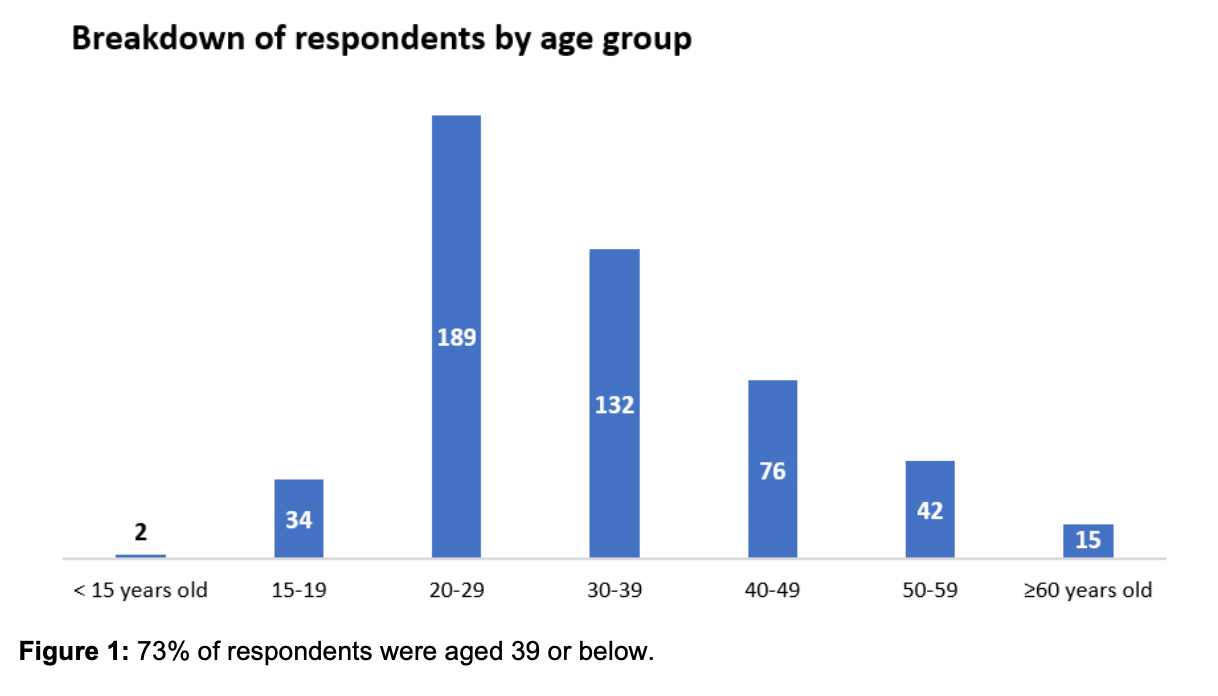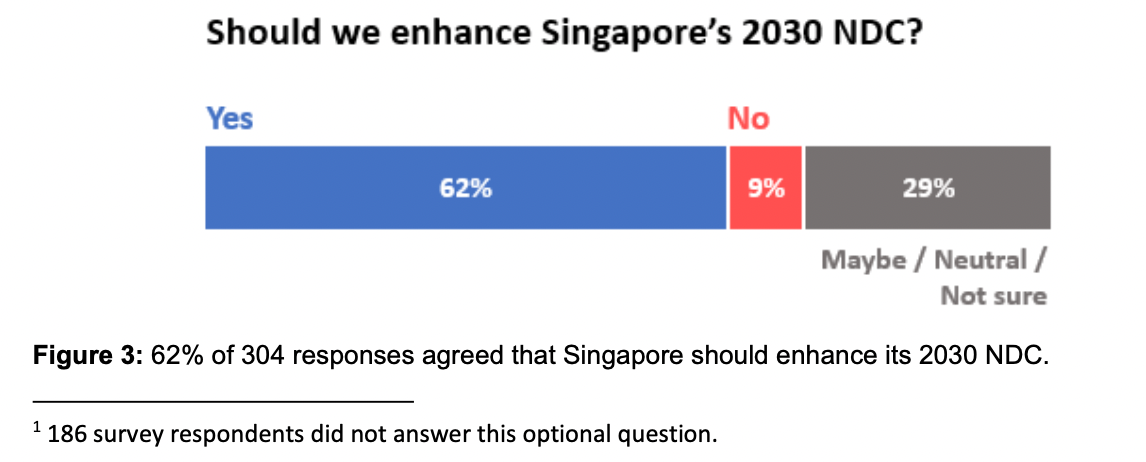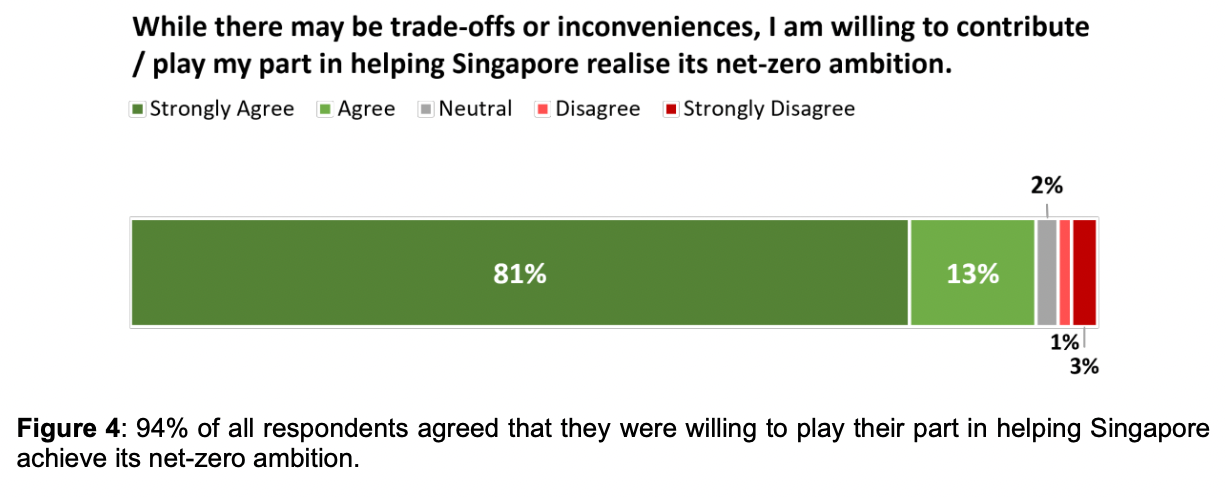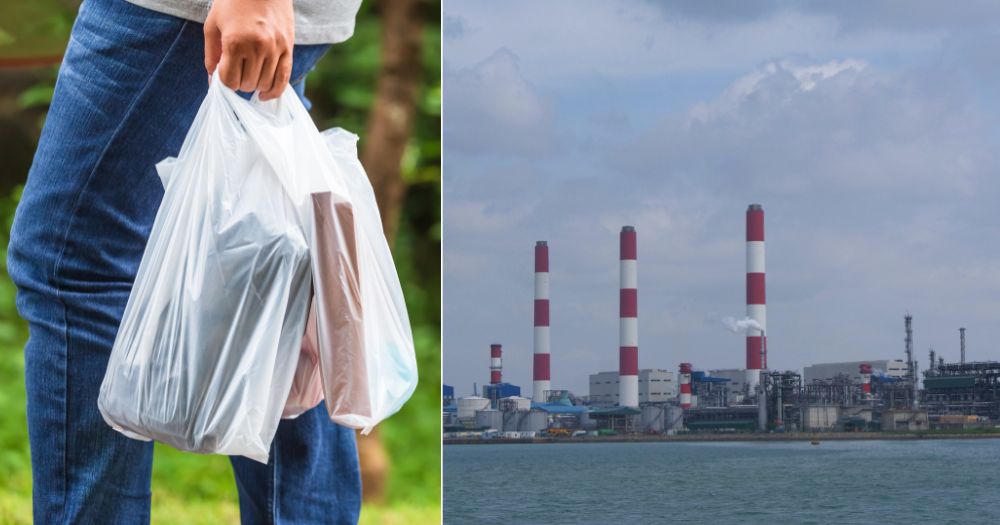Follow us on Telegram for the latest updates: https://t.me/mothershipsg
The National Climate Change Secretariat (NCCS) has shared a summary of the results it gathered through its stakeholder engagements and public consultation regarding Singapore's goal to achieve net-zero by 2050.
The updated goals were announced by Deputy Prime Minister and Minister for Finance Lawrence Wong on Tuesday (Oct. 25).
What businesses, green groups and youths had to say
Stakeholder and public engagements were carried out under Singapore Green Plan 2030, NCCS shared.
It involved more than 1,200 members of the public and key stakeholders, such as businesses, green groups, and youths.
NCCS noted that across stakeholder groups, the need to take urgent climate action is agreed upon.
Technological immaturity an impediment
According to the NCCS, many companies in emissions intensive trade exposed (EITE) industries are working towards the development and implementation of long-term decarbonisation plans.
However, these companies face near-term challenges such as the relative immaturity of decarbonisation pathways and the need for clean energy access.
EITE industries are those that emit large amount of emissions and face global competition for their products.
Examples include the chemicals, electronics and biomedical engineering sectors.
Some SMEs see limited benefits
Locally, some small and medium enterprises (SMEs) recognised global urgency to adopt sustainability practices, agreeing with the need to decarbonise.
However, some SMEs reflected that they do not currently face pressure from their stakeholders to do so and see limited benefits in adopting sustainability practices.
Through the engagements, green groups and NGOs expressed that they gained a better understanding of Singapore's constraints and limitations, NCCS said.
Youths see emissions reduction as a priority
The groups and organisations also expressed a strong willingness to lead and contribute to ground-up efforts to support Singapore's net-zero transition.
Youths held the view emissions reduction should be one of the country's top priorities, highlighting public-private partnerships and government support as key to achieving net-zero goals.
94 per cent willing to make contributions
The public consultation launched by NCCS in September received 490 responses in total.
189 of the respondents, about 38 per cent, were aged between 20 and 29 years old.
 Image via NCCS.
Image via NCCS.
Based on the results, 66 per cent of respondents found the new climate goals "not sufficiently ambitious".
Of these, 126 respondents proposed that the net-zero target year should be some time between 2040 and 2049.
26 per cent of respondents think that the new climate goals are "just right".
On the new 2030 goals, 62 per cent of 304 respondents agreed that Singapore should enhance its goals while 9 per cent responded "no".
186 of survey respondents did not respond to the "optional" question, NCCS noted.
 Image via NCCS.
Image via NCCS.
94 per cent of all respondents agreed that they are willing to contribute and play their part in helping realise Singapore's net-zero goals, recognising that they may be trade-offs or inconveniences that come with the goals.
 Image via NCCS.
Image via NCCS.
Suggestions to achieve net-zero goals
Respondents were also asked to provide suggestions on how Singapore can work towards its net-zero goals.
Here's an overview of the suggestions received:
Catalysing business transformation
Respondents suggested that Singapore can pivot its economy away from emissions-intensive industries such as the energy and chemical sectors.
Businesses can implement decarbonisation plans, commit to net-zero targets outlined by Science Based Targets initiatives, and factor environmental, social and governance considerations into their business models.
Businesses can also encourage the adoption of environmentally friendly behaviour among employees and pivot to offer sustainable goods and services.
The government can implement incentives and disincentives to nudge companies in the right direction.
Emissions reporting among businesses should also be encouraged, and the government can consider making the reporting requirements for businesses mandatory through legislation.
To build a workforce ready for the green economy, the government can provide support for affected workers to reskill.
The government and financial institutions should also put pause to funding fossil fuel projects and make available green financing for businesses looking to transition away from fossil fuels.
Low-carbon technologies
Singapore can ramp up investment in and deployment of alternative clean technologies by incentivising their installation among home owners and building owners.
Adoption of nuclear power should also be reconsidered.
Respondents also noted that the government can partner businesses to accelerate Singapore’s decarbonisation through investments in research and development.
International collaboration
Respondents suggested that the recent development of importing electricity from Malaysia and Laos are a step in the right direction, and efforts to develop the ASEAN power grid can be accelerated.
High standards should be upheld so that green projects carried out overseas do not adversely affect local communities and environment.
On carbon credits, Singapore should prioritise achieving absolute reduction in absolute emissions first.
Credits purchase should be the last resort.
Low-carbon practices
In terms of low-carbon practices, respondents highlighted the adoption of nature-based solutions, green infrastructure, and the promotion of green lifestyles.
For example, the public transport network can be further electrified, and individuals can choose to take public transport instead of driving, among other behavioural changes.
Preservation of mangroves, forests and other natural habitats should be prioritised as they serve as carbon stores.
Other suggestions include raising energy-efficiency requirements of buildings and setting a minimum temperature for air-conditioning.
The government can facilitate green lifestyles through the policies it implement, such as by strengthening the local agri-food scene to reduce emissions from food imports, or banning single-use plastics.
More can be done to increase publicity and education on climate change.
Respondents also indicated that the government can take the lead on these, and continue public consultation on its climate change policies and plans.
Carbon tax increase a right step
Respondents agreed that the decision to increase carbon tax to S$50 to S$80 per MtCO2e is the right step, but noted that the carbon price can be further increased.
Emissions threshold can also be lowered to 25 ktCO2e for industrial facilities to include smaller emitters.
A progressive taxation system can also be considered so larger emitters and those with higher means bear higher costs.
The government can also disclose carbon tax allowances given to companies for transparency.
Support for households, especially vulnerable and low-income segments of society, can be provided to ensure they are not adversely affected by the carbon tax and other climate change policies.
Top image via Canva and Wikimedia Commons
If you like what you read, follow us on Facebook, Instagram, Twitter and Telegram to get the latest updates.
